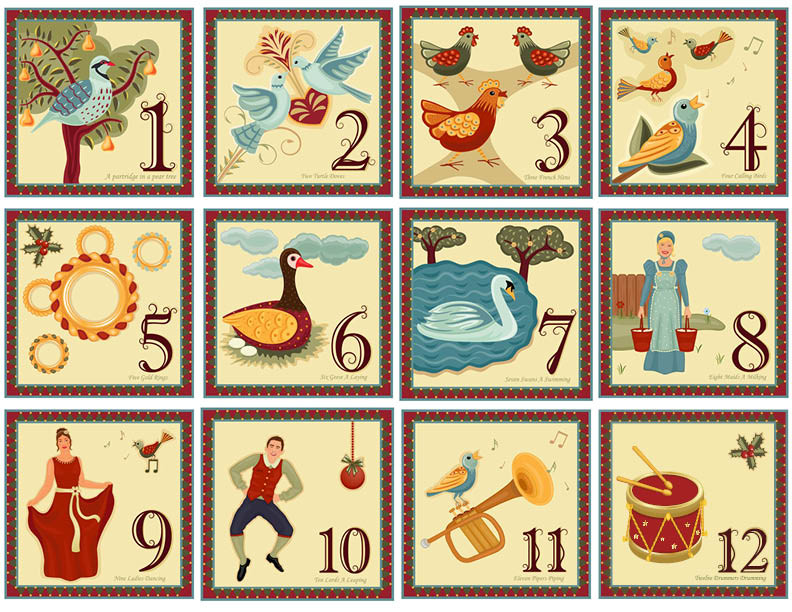Have you ever wondered about the “twelve days of Christmas”? In the U.S. many people think that the “twelve days of Christmas” are the 12 days leading up to Christmas. Some holiday advertising makes this assumption. But that is not correct. Actually it refers the twelve days beginning with Christmas and ending the day before the feast of Epiphany on January 6. Today is the sixth day of Christmas.
![]() Epiphany, which means “appearing,” has been celebrated in the church from at least the 4th century. This feast is usually connected to the visit of the Magi, although there is nothing in the Bible to indicate that the Magi appeared on Jan. 6. In the Eastern Orthodox churches Epiphany is a celebration of Christ’s baptism and is considered the third most important feast of the year after Easter and Pentecost.
Epiphany, which means “appearing,” has been celebrated in the church from at least the 4th century. This feast is usually connected to the visit of the Magi, although there is nothing in the Bible to indicate that the Magi appeared on Jan. 6. In the Eastern Orthodox churches Epiphany is a celebration of Christ’s baptism and is considered the third most important feast of the year after Easter and Pentecost.
While we end our Christmas celebration after Dec. 25, in the Middle Ages they had 12 days of continuous feasting and merrymaking. Sometimes small gifts were given to children each day. The twelfth day of Christmas (Jan. 5) marks the end of the Christmas season and was the traditional day for taking down Christmas decorations. Shakespeare’s play The Twelfth Night is named after this day.
The well known English Christmas carol The Twelve Days of Christmas has often perplexed people, but it makes more sense when we understand that it refers to the twelve days beginning with Christmas. Although some have suggested that the song was a cryptic way to teach Christian doctrine in a time of persecution, that theory has a lot of problems. It is more likely that the song originated as a memory game played on the twelfth night.
Christians in past ages put a lot more emphasis on fasting and repentance than we do, but they also spent more time rejoicing. The OT believers also had feasts that went on for a week or more. There is something to be said for God-centered rejoicing. Perhaps we can reclaim the twelve days of Christmas, called Christmastide in the liturgical churches, as a religious holiday. Now that we are done with the shopping frenzy and gift giving, we can pause to reflect and give thanks for what God has done for us in sending His Son. Perhaps it is too soon to be done with Christmas just yet.
For further reading:
- The Twelve Days of Christmas (Dennis Bratcher)
- Wikipedia on The Twelve Days of Christmas
- The Season of Epiphany

I also propose feasting from Easter to Pentecost if we fast for forty days of Lent. The church calendar can provide focus for reading, preaching and reflection and give stability for musical planning if we expect to have anyone like Bach again.